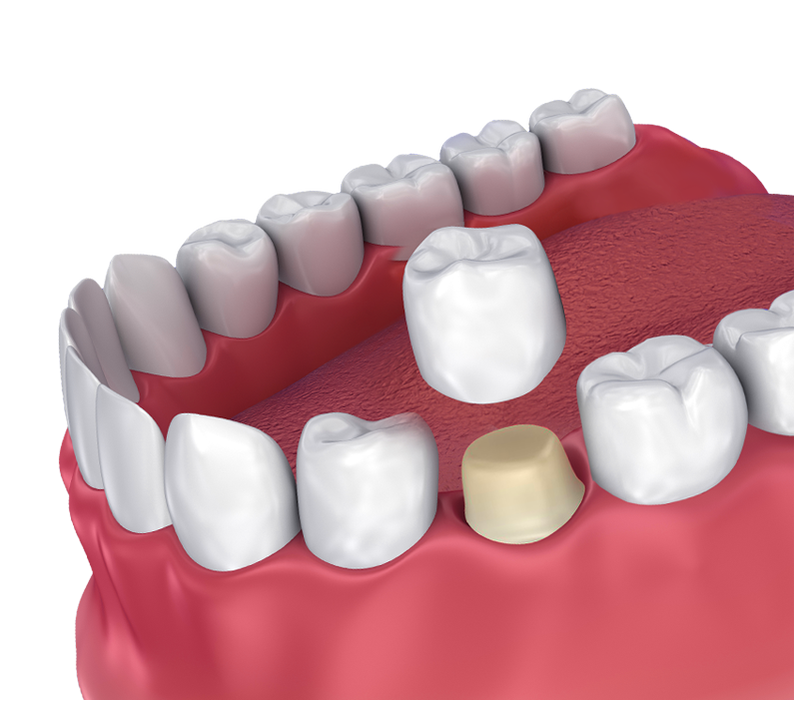Dental Crowns Supplied & Fitted In Windermere
|
What is a crown?
A crown is a cap that is placed over a tooth and held in place by dental adhesive or cement. Crowns are used for several reasons:
Firstly, a thorough clinical examination is conducted with radiographs, by the dentist. The suitability for crowns is assessed and any preparatory work is carried out. Your dentist will also be able to advise on material choices, treatment sequence and any other concerns you may have. At the second appointment, the teeth to be crowned are prepared. This involves reduction of the tooth size (usually under local anaesthesia) followed by an impression or mould of the prepared tooth. This trimming of the tooth is required to create space for the crown to be fitted. The mould taken is then sent to a laboratory where skilled technicians will fabricate the crown. In the meantime, a temporary crown is made and fitted onto the trimmed tooth. At the third appointment, the temporary crown is removed and the tooth surfaces cleaned. The completed crown is tried on the tooth for fit, harmony with the bite, and appearance. Finally, the crown is cemented onto the prepared tooth with dental cement. What are crowns made from? Crowns can be made from a variety of materials. They can be made from plastic, ceramic or metal alloys. A combination of metal and ceramic is also possible to maximise strength and simulate the appearance of natural teeth. How long do crowns last and how do I care for them? Crowns are made of inert materials that do not deteriorate over time. However, the underlying tooth is still prone to decay and gum disease. Ceramic on the surface may chip or fracture. Avoid chewing excessively-hard substances like ice or bones. Daily brushing and flossing are essential for maintaining good oral health as well as keeping the crown trouble-free. The most vulnerable portion of the crown is the margin or the junction between tooth and crown. Regular check-ups will enable your dentist to detect any problems with your crown and recommend necessary treatment. |


